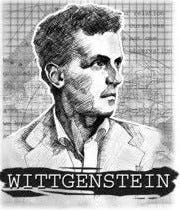On the logical necessity of mysticism
The word mysticism is a lot like the word “metaphysics”; it doesn't mean what most people think it means. The word mysticism carries with it a lot of baggage that must be left behind before one can begin to grasp its true meaning and significance.
Mysticism is not meditation; it is not channeling; it is not ESP, it is not strictly an Asian concept. It is, as Webster's New World Dictionary defines it: “The belief in direct or intuitive attainment of communion with God or of spiritual truths.” There is no dogma here, no rites of initiation, no lunatic fringe stuff at all. Mysticism is the belief in direct communion with the basic principle of the universe – you can call it God, Allah, the Tao, Buddha-Nature, Gia, or whatever. The name you pick is not important.
This direct communion means that spiritual truths are grasped without an intermediary: without logic, without science, without a guru or minister, without a spirit guide, without doctrine – in fact, without words. A mystical insight puts a spiritual truth on the level of a slap in the face – once you experience it, there is no question about its reality – at least to the one who has felt it.
Being able to pass this directly experienced spiritual truth on to others is a problem, however, since it is perceived without the intermediary of words, and words are how we communicate. Thus some of the most profound insights sound nonsensical, and many mystics are forced to agree with Ludwig Wittgenstein who wrote:
Whereof one cannot speak, thereof one must be silent.
Such is the level of frustration that these folks may walk into the desert or the mountains and abandon the company of other humans forever.
I contend that there is no doubt that some knowledge exists which cannot be communicated. Trying to communicate it anyway leads to the paradoxical sayings that are often attributed to mystics.
Here is why mysticism is a logical necessity: (1) We think in words, (2) Words are approximations, therefore (3) There are things which cannot be expressed; this is the essence of the mystical.
(To those who respond that thoughts do not arrive in words but are simply expressed in them, this is simply not the case. I will beg your indulgence while you read on to see why.)
As Wittgenstein states in proposition 6.522 of the Tractatus Logico Philosophicus:
There are, indeed, things that cannot be put into words. They make themselves manifest. They are what is mystical.
The Tractatus Logico Philosophicus is, to a great extent, a logical proof of the necessity of mysticism. In a manner reminiscent of Lao Tzu's writing of the Tao Te Ching, the words of this short book had to almost be bled out of Wittgenstein while he wrote it. Consider these two quotations:
Those who speak, do not know; those who know, do not speak.
Lao Tsu, Tao Te Ching
Whereof one cannot speak, thereof one must be silent
Ludwig Wittgenstein, Tractatus Logico Philosophicus
Now consider how hard it is to write a treatise on the matter! Consider all of the aspects of life which cannot be adequately expressed in language: “love”, “beauty”, “flow”, “happiness”.
In many ways, all of the things in life that matter most are the hardest to describe.
Since his death in 1951, academic philosophers have tried to understand Wittgenstein’s work by turning it into “a system” or some other equally cruel torture. For me, his work is easy to understand, because his “philosophy” is “no-philosophy” – time and again he writes that philosophy is an activity of clarification, not an attempt at systematically writing down all the Truths of the world. One of the last sentences he wrote before his death, later published in the book On Certainty, was: “Doubting and non-doubting behavior. There is a first only if there is a second.” Thirty years before that, he wrote:
Skepticism is not irrefutable, but obviously nonsensical, when it tries to raise doubts where no questions can be asked. For doubt can exist only where a question exists, a question only where an answer exists, and an answer only where something can be said.
Ludwig Wittgenstein, Tractatus Logico Philosophicus
Is the point that Wittgenstein was a Taoist? No, of course not. What is important is that here we have the most influential philosopher of the 20th century, originally trained as an engineer, who becomes so deeply immersed in logic that he eventually realizes that it is a house of cards. In fact, in his later thought Wittgenstein began to describe logic as another form of what he called a “language game.” Such a game is fine, as long as everybody is playing by the same rule book. But, like any other game, it doesn’t necessarily have anything to do with life-as-we-live-it.
This mystical orientation in a logician is not limited to Wittgenstein; it is a fairly common phenomenon among logicians and theoretical mathematicians. For example, Raymond Smullyan, a mathematical logician with an international reputation, is also the author of The Tao is Silent – his ruminations upon the Tao.
So where does this all lead? I personally do not advocate that anyone accept any teaching uncritically. However, I think that some who would profit from the acceptance of mysticism are kept from doing so because they are afraid to admit a certain “illogic” into their lives. For those people, I offer Wittgenstein’s analysis of the nature of logic as the instrument to rid themselves of the chains of reliance on a stilted logic and to free themselves to experience the mystical in their lives.



